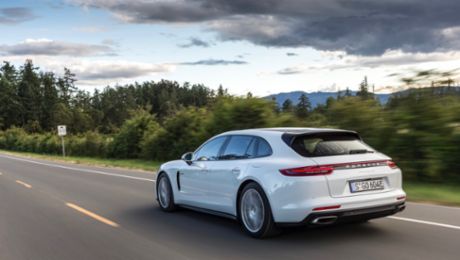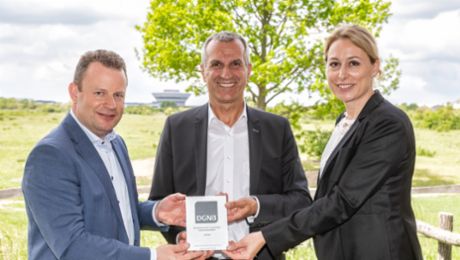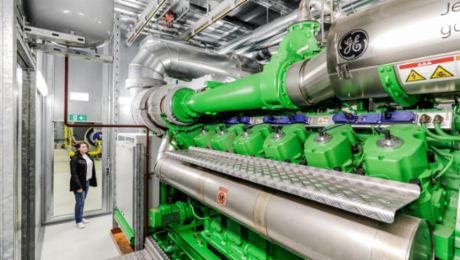The path is part of the destination. This is particularly true of the vision for sustainable individual mobility. The longed-for end goal – transport systems which are sustainable and produce no emissions – necessitates an entire series of impactful steps which make individual forms of transport more environmentally friendly and less resource-heavy. The future is today.
The optimisation of combustion engines to make them ever more fuel efficient and the evolution of hybrid technology as a bridge towards fully sustainable mobility are mirrored in developments in the field of fuel technology. Alternatives to petrol and diesel from crude oil have been widely available for many years, and are sometimes even combined with traditional energy sources – as fuel hybrids, one might say. Examples include the blending of ethanol from renewable sources with fossil fuels. In many countries around the world, this blending rate (which is continuously increasing) is even enshrined in law. Strategies that promote a move away from fossil fuels are intended to curb global warming. Regenerative fuels can make a significant contribution in this respect.
Of course, these fuel components still release CO2 when they are burned. However, a holistic assessment makes the difference clear: energy generated without the use of CO2 can be used to produce gaseous and liquid fuels from readily available components such as carbon dioxide and water (power-to-x). The same is true for biofuels: in this case, carbon dioxide and water which are already present in the environment are used for plant growth. During combustion in the engine, these regenerative fuels release only the amount of CO2 used in their production, i.e. the climate impact is neutral or even positive. If all fuels could be generated in this way, a climate-neutral combustion engine might become reality. This would allow us to overcome the day when the oil wells run dry.
Exhaust emission figures are significantly lower
There is a great deal more to these fuels than their sustainability in terms of CO2 impacts, however. Their exhaust emission figures are significantly lower than those for fossil fuel energy sources; for example, they emit substantially fewer soot particles or nitrogen oxides than petrol.
Jörg Kerner, Head of Powertrain Development, highlights another important point: "Sustainably produced fuels are a quick way to cut CO2 emissions from a company's existing fleet. Future stages of development will produce specially designed engines which are able to harness the full potential of these fuels in terms of optimised emissions, CO2 and performance. In combination with plug-in technology, this will deliver a driving experience typical of Porsche while at the same time ticking every environmental box."
Using the existing network of petrol stations would enable widespread availability to be achieved quickly. Synthetic fuels from sustainable sources are therefore a key bridge towards climate-neutral mobility in an emission-free future, and an important building block for rapid CO2 reductions in existing fleets, particularly since the blending proportion can be gradually increased and the procedure is compatible with existing engine concepts.
Sustainable individual mobility is not just wishful thinking
In the foreseeable future, powertrains featuring combustion engines that operate using sustainably produced fuels will be offered as an optimum solution for sports cars in terms of performance, vehicle weight and range – key considerations from the perspective of Porsche customers. Even in areas where local exhaust emissions must be avoided at all costs, however, an emission-free powertrain is no longer a pipe dream for Porsche.
In such cases, electric vehicles and plug-in hybrid vehicles which can be operated with either fuel or electricity from renewable sources offer a CO2-free alternative. Meaning that sustainable individual mobility is not just wishful thinking.




